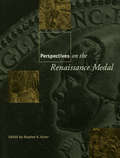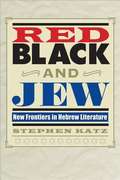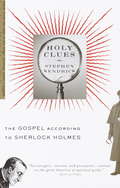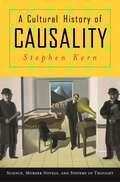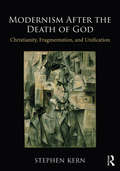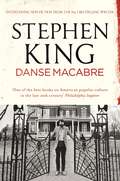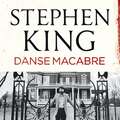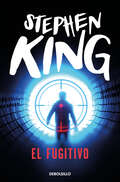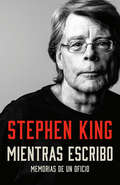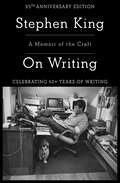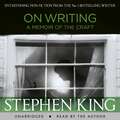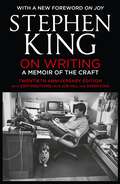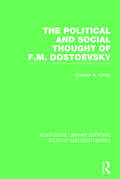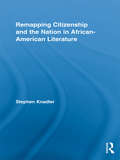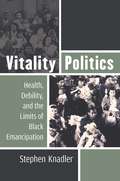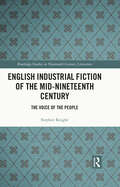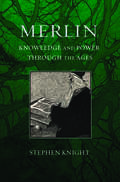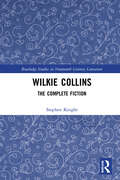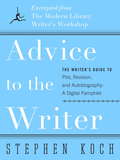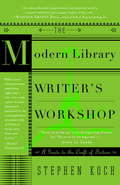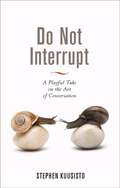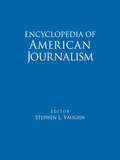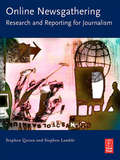- Table View
- List View
Russian Bible Wars
by Stephen K. BataldenAlthough biblical texts were known in Church Slavonic as early as the ninth century, translation of the Bible into Russian came about only in the nineteenth century. Modern scriptural translation generated major religious and cultural conflict within the Russian Orthodox church. The resulting divisions left church authority particularly vulnerable to political pressures exerted upon it in the twentieth century. Russian Bible Wars illuminates the fundamental issues of authority that have divided modern Russian religious culture. Set within the theoretical debate over secularization, the volume clarifies why the Russian Bible was issued relatively late and amidst great controversy. Stephen Batalden's study traces the development of biblical translation into Russian and of the 'Bible wars' that then occurred in the nineteenth and twentieth centuries in Russia. The annotated bibliography of the Russian Bible identifies the different editions and their publication history.
Perspectives on the Renaissance Medal: Portrait Medals of the Renaissance (Garland Studies in the Renaissance #9)
by Stephen K. ScherThe papers published in this book were delivered at two conferences held in conjunction with the exhibition, " The Currency of Fame: Portrait Medals of the Renaissance"
Red, Black, and Jew: New Frontiers in Hebrew Literature
by Stephen KatzBetween 1890 and 1924, more than two million Jewish immigrants landed on America's shores. The story of their integration into American society, as they traversed the difficult path between assimilation and retention of a unique cultural identity, is recorded in many works by American Hebrew writers. Red, Black, and Jew illuminates a unique and often overlooked aspect of these literary achievements, charting the ways in which the Native American and African American creative cultures served as a model for works produced within the minority Jewish community. Exploring the paradox of Hebrew literature in the United States, in which separateness, and engagement and acculturation, are equally strong impulses, Stephen Katz presents voluminous examples of a process that could ultimately be considered Americanization. Key components of this process, Katz argues, were poems and works of prose fiction written in a way that evoked Native American forms or African American folk songs and hymns. Such Hebrew writings presented America as a unified society that could assimilate all foreign cultures. At no other time in the history of Jews in diaspora have Hebrew writers considered the fate of other minorities to such a degree. Katz also explores the impact of the creation of the state of Israel on this process, a transformation that led to ambivalence in American Hebrew literature as writers were given a choice between two worlds. Reexamining long-neglected writers across a wide spectrum, Red, Black, and Jew celebrates an important chapter in the history of Hebrew belles lettres.
Holy Clues: The Gospel According to Sherlock Holmes
by Stephen KendrickIf God is the greatest mystery of them all, then why not, in pursuit of God, consult the greatest detective of them all? In this imaginative and surprisingly profound book, Stephen Kendrick reveals Sherlock Holmes as spiritual guide. Drawing on the teachings of Christianity, Buddhism, and Judaism--as well as a host of thinkers as varied as Albert Einstein, Gandhi, and Vincent van Gogh--Kendrick explores the stories of Sherlock Holmes and finds remarkably prescient religious insights. He shows us the link between careful observation of clues and the Buddhist concept of "Bare Attention. " He illuminates the parallel between the great sleuth's pursuit of justice and God's actions on the scene of the first murder, when Cain slew Abel. And in the detective's open, engaged mind, Kendrick finds a model for uniting the principles of science with a sincere spiritual quest. The result is a book of inspiration for the modern, skeptical searcher--and an entertaining work that sheds new light on the methods of the world's greatest detective.
A Cultural History of Causality: Science, Murder Novels, and Systems of Thought
by Stephen KernThis pioneering work is the first to trace how our understanding of the causes of human behavior has changed radically over the course of European and American cultural history since 1830. Focusing on the act of murder, as documented vividly by more than a hundred novels including Crime and Punishment, An American Tragedy, The Trial, and Lolita, Stephen Kern devotes each chapter of A Cultural History of Causality to examining a specific causal factor or motive for murder--ancestry, childhood, language, sexuality, emotion, mind, society, and ideology. In addition to drawing on particular novels, each chapter considers the sciences (genetics, endocrinology, physiology, neuroscience) and systems of thought (psychoanalysis, linguistics, sociology, forensic psychiatry, and existential philosophy) most germane to each causal factor or motive. Kern identifies five shifts in thinking about causality, shifts toward increasing specificity, multiplicity, complexity, probability, and uncertainty. He argues that the more researchers learned about the causes of human behavior, the more they realized how much more there was to know and how little they knew about what they thought they knew. The book closes by considering the revolutionary impact of quantum theory, which, though it influenced novelists only marginally, shattered the model of causal understanding that had dominated Western thought since the seventeenth century. Others have addressed changing ideas about causality in specific areas, but no one has tackled a broad cultural history of this concept as does Stephen Kern in this engagingly written and lucidly argued book.
Modernism After the Death of God: Christianity, Fragmentation, and Unification
by Stephen KernModernism After the Death of God explores the work of seven influential modernists. Friedrich Nietzsche, James Joyce, D. H. Lawrence, André Gide, and Martin Heidegger criticized the destructive impact that they believed Christian sexual morality had had or threatened to have on their love life. Although not a Christian, Freud criticized the negative effect that Christian sexual morality had on his clinical subjects and on Western civilization, while Virginia Woolf condemned how her society was sanctioned by a patriarchal Christian authority. All seven worked to replace the loss or absence of Christian unity with non-Christian unifying projects in their respective fields of philosophy, psychiatry, or literature. The basic structure of their main contributions to modernist culture was a dynamic interaction of radical fragmentation necessitating radical unification that was always in process and never complete.
Danse Macabre
by Stephen KingIt was not long after Halloween when Stephen King received a telephone call from his editor. 'Why don't you do a book about the entire horror phenomenon as you see it? Books, movies, radio, TV, the whole thing.'The result is this unique combination of fantasy and autobiography, of classic horror writing honed to an unforgettable edge by the bestselling master of the genre.DANSE MACABRE ranges across the whole spectrum of horror in popular culture from the seminal classics of Dracula and Frankenstein. It is a charming and fascinating book, replete with pertinent anecdote and observation, in which Stephen King describes his ideas on how horror works on many levels and how he brings it to bear on his own inimitable novels.There is a reason why Stephen King is one of the bestselling writers in the world, ever. Described in the Guardian as an author who 'knows how to engage the deepest sympathies of his readers', Stephen King writes books that draw you in and are impossible to put down.
Danse Macabre
by Stephen KingIt was not long after Halloween when Stephen King received a telephone call from his editor. 'Why don't you do a book about the entire horror phenomenon as you see it? Books, movies, radio, TV, the whole thing.'The result is this unique combination of fantasy and autobiography, of classic horror writing honed to an unforgettable edge by the bestselling master of the genre.DANSE MACABRE ranges across the whole spectrum of horror in popular culture from the seminal classics of Dracula and Frankenstein. It is a charming and fascinating book, replete with pertinent anecdote and observation, in which Stephen King describes his ideas on how horror works on many levels and how he brings it to bear on his own inimitable novels.There is a reason why Stephen King is one of the bestselling writers in the world, ever. Described in the Guardian as an author who 'knows how to engage the deepest sympathies of his readers', Stephen King writes books that draw you in and are impossible to put down.(P)2010 Brilliance Audio, Inc.
El fugitivo
by Stephen KingUna angustiante novela del maestro de terror Stephen King sobre un aterrador futuro donde la televisión es la única realidad. A mediados del siglo XXI, un concurso televisivo, cuyo principal atractivo es la muerte de los participantes, bate récords de audiencia. Ben Richards, padre de una niña enferma y sumido en la más profunda miseria, decide concursar atraído por los extraordinarios premios, aun a sabiendas de que no sobrevivirá. Sometido a una implacable persecución, se plantea un único objetivo: resistir tantos días como sea posible para aumentar el premio y asegurar la subsistencia de su familia.
Mientras escribo (Bestseller/debolsillo Ser. #Vol. 102)
by Stephen KingPocas veces un libro sobre el oficio de escribir ha resultado tan clarificador, útil y revelador. Cuando Stephen King se decidió a escribir sobre su profesión y su vida, un brutal accidente automovilístico puso ambas en riesgo. Durante su convalecencia, el novelista descubrió los vínculos cada vez más fuertes entre la escritura y la vida. Y el resultado es este extraordinario libro, que es al mismo tiempo un ensayo sobre creación literaria y un relato autobiográfico. Mientras escribo comienza con la asombrosa infancia de Stephen King y su extraño y temprano interés por la escritura que lo llevaron a la culminación de su primera novela, Carrie. A continuación, King describe las herramientas básicas del oficio y expone sus opiniones personales sobre los secretos de la escritura. Mientras escribo culmina con el conmovedor relato de cómo su necesidad de escribir lo ayudó a recuperarse de su casi fatal accidente. Una vez más Stephen King demuestra que es mucho más que unmaestro del thriller: un gran escritor.
On Writing: A Memoir Of The Craft
by Stephen KingCELEBRATING 50 YEARS OF WRITING with fresh testimonials from fellow writers about why they love Stephen King and On Writing—and a few new words on the joy of writing from King himself. *ONE OF TIME MAGAZINE&’S TOP 100 NONFICTION BOOKS OF ALL TIME* Immensely helpful and illuminating to any aspiring writer, this special edition of Stephen King&’s critically lauded, million-copy bestseller shares the experiences, habits, and convictions that have shaped him and his work. &“Long live the King&” hailed Entertainment Weekly upon publication of Stephen King&’s On Writing. Part memoir, part master class by one of the bestselling authors of all time, this superb volume is a revealing and practical view of the writer&’s craft, comprising the basic tools of the trade every writer must have. King&’s advice is grounded in his vivid memories from childhood through his emergence as a writer, from his struggling early career to his widely reported, near-fatal accident in 1999—and how the inextricable link between writing and living spurred his recovery. Brilliantly structured, friendly and inspiring, On Writing will empower and entertain everyone who reads it—fans, writers, and anyone who loves a great story well told.
On Writing: A Memoir of the Craft
by Stephen KingNot since Dickens has a writer had so many readers by the throat . . . King's imagination is vast. He knows how to engage the deepest sympathies of his readers . . . It is part biography, part collection of tips for the aspiring writer. In the final chapters, King tells, in graphic details, the story of his recent accident . . . a bizarre and absorbing story, told brillinatly by one of the great storytellers of our time' - GuardianIn June of 1999, Stephen King was hit by a van while walking along the shoulder of a country road in Maine. Six operations were required to save his life and mend his broken body. When he was finally able to sit up, he immediately started writing. This book is the extraordinary result.(P)2000 Simon & Schuster Audio Division, Simon & Schuster Inc.
On Writing: A Memoir of the Craft
by Stephen KingThere is a reason why Stephen King is one of the bestselling writers in the world, ever. Described in the Guardian as 'the most remarkable storyteller in modern American literature', Stephen King writes books that draw you in and are impossible to put down.Part memoir, part master class by one of the bestselling authors of all time, this superb volume is a revealing and practical view of the writer's craft, comprising the basic tools of the trade every writer must have. King's advice is grounded in the vivid memories from childhood through his emergence as a writer, from his struggling early career to his widely reported, near-fatal accident in 1999 - and how the inextricable link between writing and living spurred his recovery.
The Political and Social Thought of F.M. Dostoevsky (Routledge Library Editions: Tolstoy and Dostoevsky)
by Stephen Kirby CarterThis study concentrates on The Devils, but also places this novel in the total context of Dostoevsky’s work. Also considered is the life and work of T.N. Granovsky, who is satirised along with Turgenev in the novel, and thus offers a useful basis on which to delineate the contours of Dostoevsky’s thought. First published in 1991, the book begins from the belief that his "genius embodies much of what is typical of Russian life: his boundless vitality, his extremism, his lack of empiricism and economy. To understand Dostoevsky is therefore somehow to understand Russia." The author concludes that Dostoevsky badly misunderstood Western liberalism, but grappled very well with the psychology of the radical terrorist. This is explained with reference to his intellectual revolution, which is seen as consisting of six stages from his early works of the 1840s.
Remapping Citizenship and the Nation in African-American Literature (Routledge Transnational Perspectives on American Literature)
by Stephen KnadlerThrough a reading of periodicals, memoirs, speeches, and fiction from the antebellum period to the Harlem Renaissance, this study re-examines various myths about a U.S. progressive history and about an African American counter history in terms of race, democracy, and citizenship. Reframing 19th century and early 20th-century African-American cultural history from the borderlands of the U.S. empire where many African Americans lived, worked and sought refuge, Knadler argues that these writers developed a complicated and layered transnational and creolized political consciousness that challenged dominant ideas of the nation and citizenship. Writing from multicultural contact zones, these writers forged a "new black politics"—one that anticipated the current debate about national identity and citizenship in a twenty-first century global society. As Knadler argues, they defined, created, and deployed an alternative political language to re-imagine U.S. citizenship and its related ideas of national belonging, patriotism, natural rights, and democratic agency.
Vitality Politics: Health, Debility, and the Limits of Black Emancipation (Corporealities: Discourses Of Disability)
by Stephen KnadlerVitality Politics focuses on a slow racial violence against African Americans through everyday, accumulative, contagious, and toxic attritions on health. The book engages with recent critical disability studies scholarship to recognize that debility, or the targeted maiming and distressing of Black populations, is a largely unacknowledged strategy of the U.S. liberal multicultural capitalist state. This politicization of biological health serves as an instrument for insisting on a racial state of exception in which African Americans’ own unhealthy habits and disease susceptibility justifies their legitimate suspension from full rights to social justice, economic opportunity, and political freedom and equality. The book brings together disability studies, Black Studies, and African American literary history as it highlights the urgent need and gives weight to a biopolitics of debilitation and medicalization to better understand how Black lives are made not to matter in our supposedly race-neutral multicultural democracy.
English Industrial Fiction of the Mid-Nineteenth Century: The Voice of the People (Routledge Studies in Nineteenth Century Literature)
by Stephen KnightEnglish Industrial Fiction of the Mid-Nineteenth Century discusses the valuable fiction written in mid-nineteenth-century Britain which represents the situations of the new breed of industrial workers, both the mostly male factory workers who operated in the oppressive mills of the midlands and north and, in other stories, the oppressed seamstresses who worked mostly in London in very poor and low-paid conditions. Beginning with a general introduction to workers’ fiction at the start of the period, this volume charts the rise of an identifiable genre of industrial fiction and the development of a substantial mode of seamstress fiction through the 1840s, including an analysis of novels by Benjamin Disraeli, Charles Kingsley, Elizabeth Gaskell and Charles Dickens, and more briefly Charlotte Bronte, Geraldine Jewsbury and George Eliot. This volume is essential reading for students and scholars of industrial fiction and nineteenth-century Britain, or those with an interest in the relationship between literature, society and politics.
G. W. M. Reynolds and His Fiction: The Man Who Outsold Dickens (Routledge Studies in Nineteenth Century Literature)
by Stephen KnightGeorge Reynolds is arguably the most prolific of all nineteenth-century English novelists, reaching an enormous audience through his thirty-six novels. Often selling in very large numbers in weekly one-penny installments, his works were known as by the most popular English novelist ever. Yet today, he remains almost unknown in the canon of English Literature. A serious radical, strongly pro-woman, and a leading Chartist seeking the vote for all men, Reynolds’ vigorous heroines differ notably from the Victorian novelists’ timid norm. He was strongly pro-Jewish and pro-Gypsy, very interested in French and Italian society, but wrote for ordinary English working people. Dickens thought him a dangerous leftist: for all these reasons, he was excluded from the elite literary world. G. W. M. Reynolds: The Man Who Outsold Dickens reestablishes Reynolds as a major figure of mid-nineteenth-century fiction and an author of European range and status. This book examines his massive popularity and notable concern with the problems of ordinary people, especially women, in the complex and often dangerous new world of the modern city. With the support of his wife Susannah, Reynolds’ enormous influence would also make a contribution to the cause of mass political education through his role in the development of popular fiction and journalism. This book is a major innovation in the field of Victorian literary studies, with relevance to popular cultural studies, the politics of literature, and publishing history, presenting properly a much overlooked major English novelist.
Merlin: Knowledge and Power through the Ages
by Stephen KnightMerlin, the wizard of Arthurian legend, has been a source of enduring fascination for centuries. In this authoritative, entertaining, and generously illustrated book, Stephen Knight traces the myth of Merlin back to its earliest roots in the early Welsh figure of Myrddin. He then follows Merlin as he is imagined and reimagined through centuries of literature and art, beginning with Geoffrey of Monmouth, whose immensely popular History of the Kings of Britain (1138) transmitted the story of Merlin to Europe at large. He covers French and German as well as Anglophone elements of the myth and brings the story up to the present with discussions of a globalized Merlin who finds his way into popular literature, film, television, and New Age philosophy. Knight argues that Merlin in all his guises represents a conflict basic to Western societies-the clash between knowledge and power. While the Merlin story varies over time, the underlying structural tension remains the same whether it takes the form of bard versus lord, magician versus monarch, scientist versus capitalist, or academic versus politician. As Knight sees it, Merlin embodies the contentious duality inherent to organized societies. In tracing the applied meanings of knowledge in a range of social contexts, Knight reveals the four main stages of the Merlin myth: Wisdom (early Celtic British), Advice (medieval European), Cleverness (early modern English), and Education (worldwide since the nineteenth century). If a wizard can be captured within the pages of a book, Knight has accomplished the feat.
Wilkie Collins: The Complete Fiction (Routledge Studies in Nineteenth Century Literature)
by Stephen KnightThis book provides the first comprehensive overview of the complete works of Wilkie Collins’s. Examining his vast array of novels and short stories, this volume includes analysis of the social, historical, and political commentary Collins offered within his works, illuminating Collins as more than a successful crime and sensation author, or the fortunate recipient of Dicken’s grand patronage, but as a hard-thinking and lively-writing part of the rich mid-Victorian literary scene. Overall, Collins is seen as a master of narratives which deal with social and personal issues that were much debated in his fifty-year authorial period. Close attention is paid to the events, themes, and characterization in his fiction, revealing his analytic vigor and the literary power of that period and context. Delivering fresh insight into the variety and richness of Collins’ themes and arguments, this volume provides a key source of information and analysis on all Collins’ fiction.
Advice to the Writer
by Stephen KochFrom Stephen Koch, former chair of Columbia University's graduate creative writing program, comes essential and practical advice drawn from The Modern Library Writer's Workshop. With nearly thirty years of teaching experience, Stephen Koch has earned a reputation as an astute and benevolent mentor; and with Advice to the Writer, his lucid observations and commonsense techniques have never been more accessible. Here Koch dispenses sound guidance for those moments when the muse needs a little help finding her way: in "Shaping the Story," he untangles plot; in "Working and Reworking," he explains the most teachable (yet least often taught) of all writerly skills: revision; and in "The Story of the Self," he delves into autobiography. Featuring handpicked commentary from some of our greatest authors, Advice to the Writer is a unique introduction to this maddening and intoxicating pursuit. Praise for Stephen Koch's The Modern Library Writer's Workshop "An extraordinarily comprehensive and practical work by a master craftsman and a master analyst of the craft."--Madison Smartt Bell, author of All Souls' Rising and Anything Goes "Stephen Koch was my teacher long ago. Now he is everyone's teacher, indelibly. This is a book not just for the beginning writer but for every writer."--Martha McPhee, author of the National Book Award nominee Gorgeous Lies "The Modern Library Writer's Workshop is a treasure trove of wisdom, both immensely practical and philosophical, entertaining and thought-provoking. Koch takes us inside the writing process, and it is impossible not to emerge transformed."--Joanna Hershon, author of Swimming
The Modern Library Writer's Workshop
by Stephen Koch“Make [your] characters want something right away—even if it’s only a glass of water. Characters paralyzed by the meaninglessness of modern life still have to drink water from time to time. ” —Kurt Vonnegut “‘The cat sat on the mat’ is not the beginning of a story, but ‘the cat sat on the dog’s mat’ is. ” —John Le Carré Nothing is more inspiring for a beginning writer than listening to masters of the craft talk about the writing life. But if you can’t get Vladimir Nabokov, Virginia Woolf, and Gabriel García Márquez together at the Algonquin,The Modern Library Writer’s Workshopgives you the next best thing. Stephen Koch, former chair of Columbia University’s graduate creative writing program, presents a unique guide to the craft of fiction. Along with his own lucid observations and commonsense techniques, he weaves together wisdom, advice, and inspiring commentary from some of our greatest writers. Taking you from the moment of inspiration (keep a notebook with you at all times), to writing a first draft (do it quickly! you can always revise later), to figuring out a plot (plot always serves the story, not vice versa), Koch is a benevolent mentor, glad to dispense sound advice when you need it most. The Modern Library Writer’s Workshopbelongs on every writer’s shelf, to be picked up and pored over for those moments when the muse needs a little help finding her way. From the Trade Paperback edition.
Do Not Interrupt: A Playful Take on the Art of Conversation
by Stephen KuusistoIn this erudite and playful primer on the art of conversation, Stephen Kuusisto vigorously tackles the slippery subject of how to converse meaningfully with others. Kuusisto employs a wide range of personal anecdotes, classical texts, and an engaging style to illustrate his points. In seven short, provocative and imaginatively wrought chapters, he spins a compelling argument for the joys of "being connected," and skillfully shows how to achieve this bond in everyday exchanges.
Encyclopedia of American Journalism
by Stephen L. VaughnThe Encyclopedia of American Journalism explores the distinctions found in print media, radio, television, and the internet. This work seeks to document the role of these different forms of journalism in the formation of America's understanding and reaction to political campaigns, war, peace, protest, slavery, consumer rights, civil rights, immigration, unionism, feminism, environmentalism, globalization, and more. This work also explores the intersections between journalism and other phenomena in American Society, such as law, crime, business, and consumption. The evolution of journalism's ethical standards is discussed, as well as the important libel and defamation trials that have influenced journalistic practice, its legal protection, and legal responsibilities. Topics covered include: Associations and Organizations; Historical Overview and Practice; Individuals; Journalism in American History; Laws, Acts, and Legislation; Print, Broadcast, Newsgroups, and Corporations; Technologies.
Online Newsgathering: Research and Reporting for Journalism
by Stephen Quinn Stephen LambleJournalists used to rely on their notepad and pen. Today, professional journalists rely on the computer-and not just for the writing. Much, if not all, of a journalist's research happens on a computer. If you are journalist of any kind, you need to know how to find the information you need online. This book will show you how to find declassified governmental files, statistics of all kinds, simple and complex search engines for small and large data gathering, and directories of subject experts. This book is for the many journalists around the world who didn't attend a formal journalism school before going to work, those journalists who were educated before online research became mainstream, and for any student studying journalism today. It will teach you how to use the Internet wisely, efficiently and comprehensively so that you will always have your facts straight and fast.Online Newsgathering:. reflects the most current thinking. is pertinent to both industry and education. focuses on what people need to knowPlease visit the authors' companion website at http://computerassistedreporting.com for additional resources.

